brThe long and bleak year of 2018 is almost over. It was a year full of devastating storms and disasters, scandal after scandal from tech companies, and chaotic politics from around the world. If there was any bright point in the year, it was that 2018 also brought with it a bumper crop of fantastic science fiction, fantasy, and horror novels that served as an oasis to examine the world around us, or to escape for brighter pastures.
The best books of this year told stories of interstellar colonization, of fantastic magical civilizations, optimistic alternate worlds, and devastating potential futures. They brought us fantastic characters who sought to find their places in the vivid and fantastic worlds they inhabited.
Here are our favorite science fiction and fantasy reads of 2018.
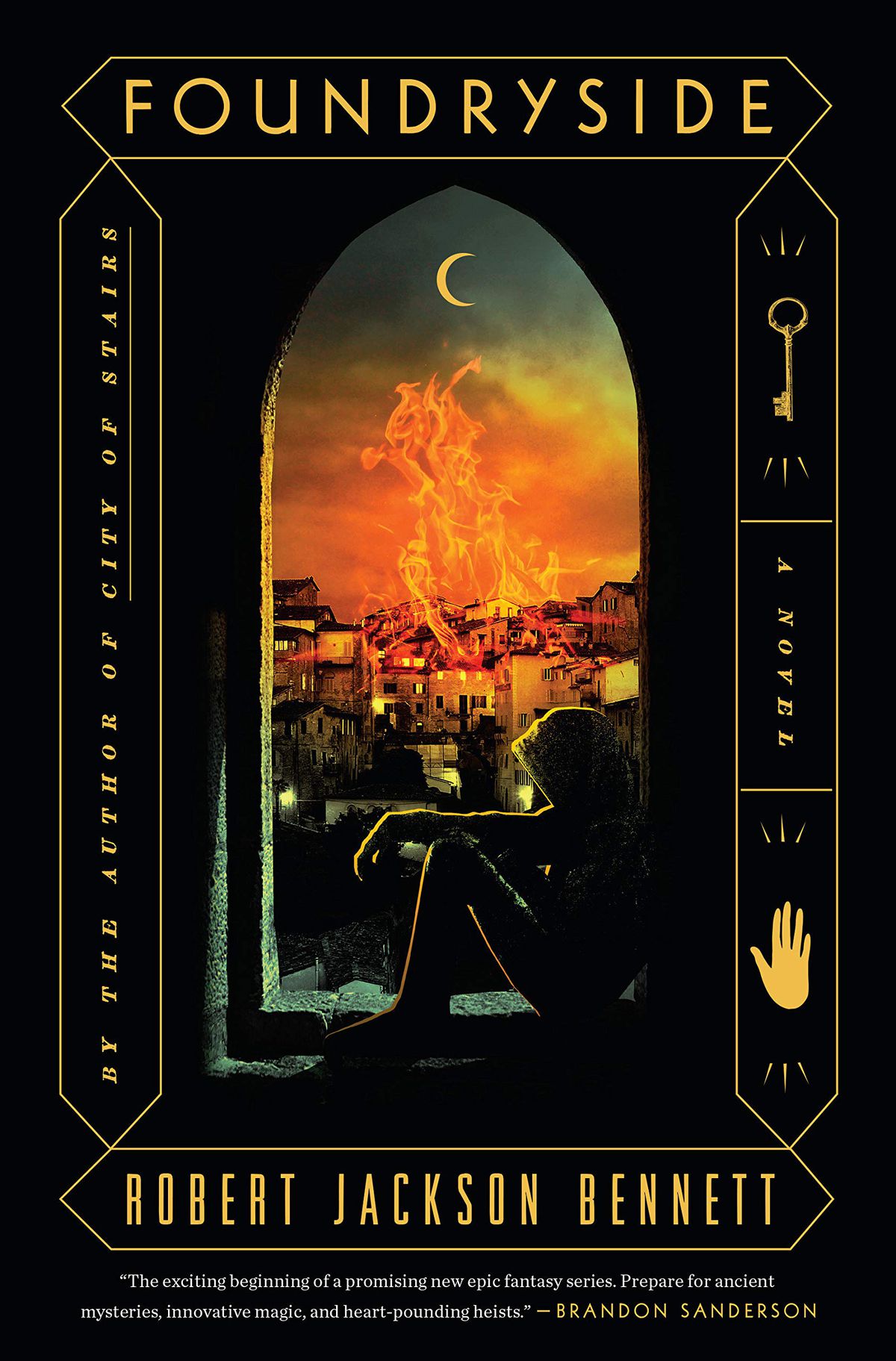
Foundryside by Robert Jackson Bennett
Robert Jackson Bennett is one of those authors who attracts a huge amount of acclaim for his books, and after reading Foundryside, I can see why. It’s an epic, breathtaking novel that’s as much cyberpunk as it is fantasy. We follow a desperate thief named Sancia Grado, who is hired to steal a mysterious box from a warehouse. Sancia has a special ability — she can sense magic imbued in objects, which makes her job easier in a world where magic is everywhere.
Bennett lays out a fantastic story ladened with fantastic characters, but it’s his take on magic that stands out here. It’s treated a bit like computer code, and in this world, people use it for everything: to strengthen city walls, to provide city lights, and imbue weapons with greater powers. Sancia stumbles on a plot to use this power to utterly remake the world, providing a chilling commentary on the lengths that people and corporations will go to ensure that they remain in power.
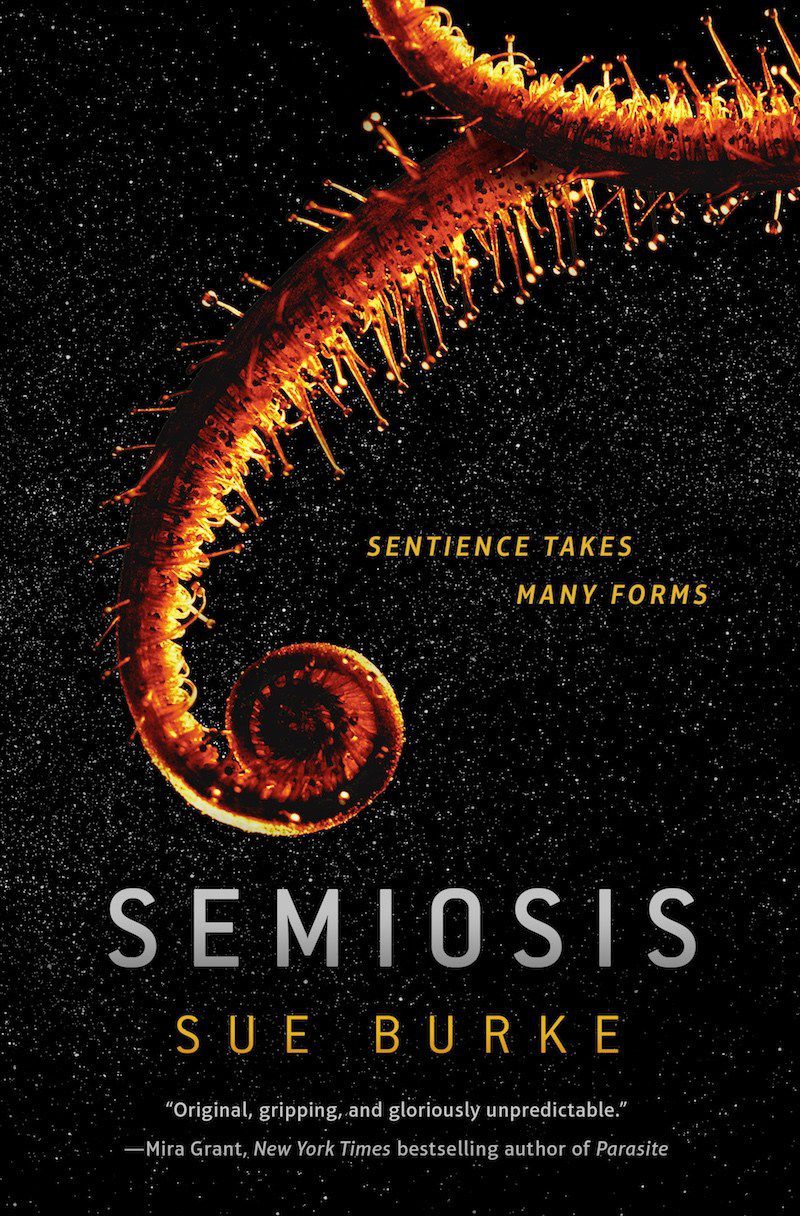
Semiosis by Sue Burke
A long-standing trope in science fiction is that moment when humanity first meets life from somewhere else in the universe. That’s the focus of Sue Burke’s debut novel, Semiosis, which recognizes that alien life likely won’t take the form of a bumpy-headed alien, but something that we might not recognize as intelligent at first blush.
Such is the case here: a spaceship departs from Earth with the mission to build a utopian civilization on a new world. But when the colonists crash-land on a planet named Pax, their focus becomes surviving among the planet’s hostile plant-life. Burke’s novel jumps from generation to generation, following the colonists and their descendants as they realize that not only are they not alone, but that co-existence is a difficult proposition.
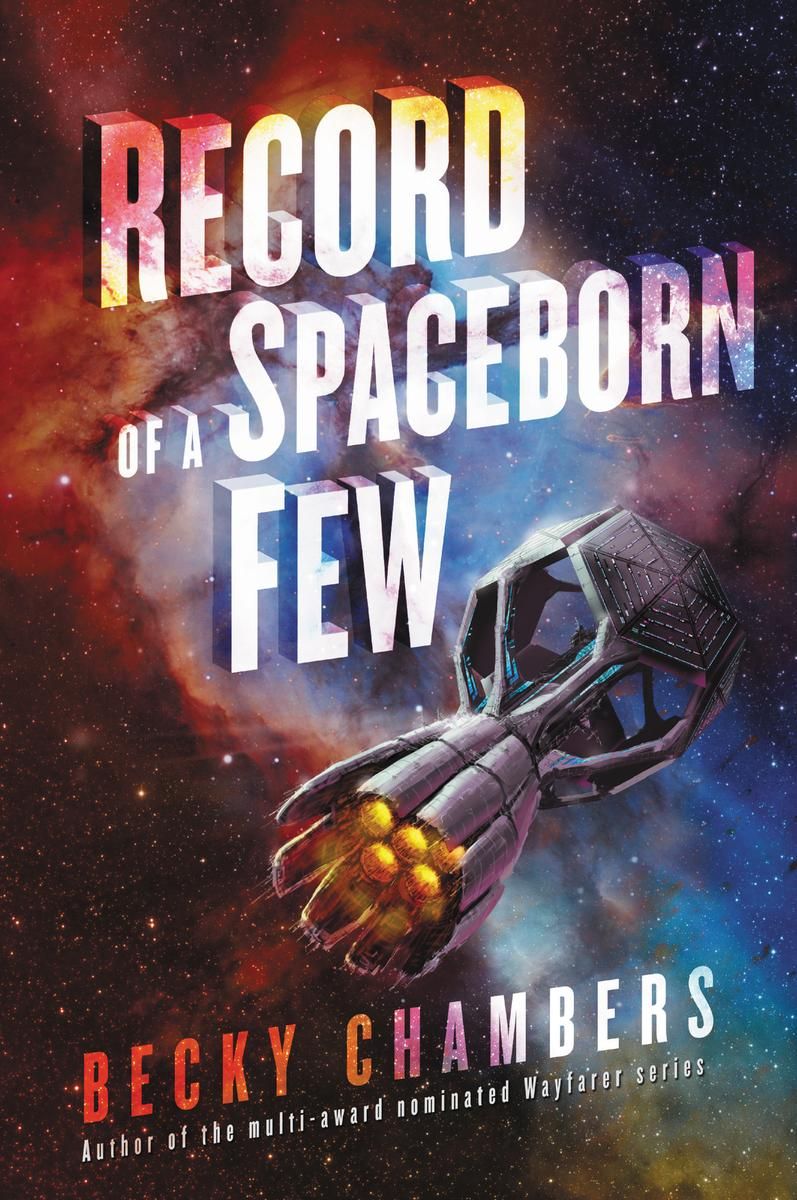
Record of a Spaceborn Few by Becky Chambers
One of the more delightful science fiction worlds to hit bookshelves in recent years is Becky Chambers’ Wayfarers “trilogy” — a series of books set in the same world, but which otherwise stand alone. The latest is Record of a Spaceborn Few, which follows the descendants of the last flotilla of starships to depart Earth, who have clung to their way of life aboard the aging fleet.
Chamber’s novel is a beautiful look at a community that is grappling with impending change. It opens with the destruction of one member of the fleet and follows the paths of several characters — parents, newcomers, alien researchers, and others — who work to make their way through life. At its core, the book takes an optimistic view of the importance of traditions and one’s way of life, but the equal importance of bending to change with circumstance.
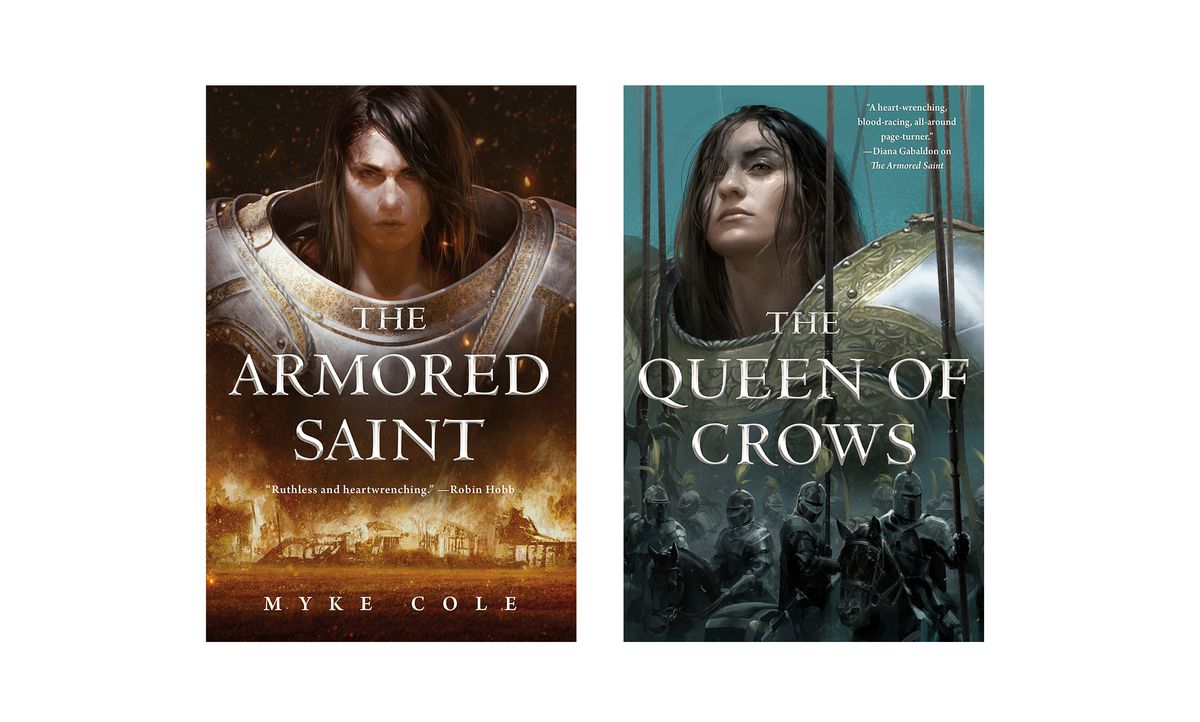
The Armored Saint and The Queen of Crows by Myke Cole
Myke Cole started his career with his Control Point trilogy — a military fantasy series in which magic appears in the real world. His latest foray is a grim jump over to epic fantasy with The Armored Saint and The Queen of Crows, the first installments of a trilogy that are pointed tales on the dangers of fascism.
The first novel introduces readers to a villager named Heloise who witnesses the brutality of the tyrannical Order, which nominally protects the world from wizards with the power to summon horrific demons. Heloise takes a stand against the order and brings destruction to her home, and in the next installment, becomes the figurehead of a growing movement to oppose and topple the Order. The concluding volume will be out next year.
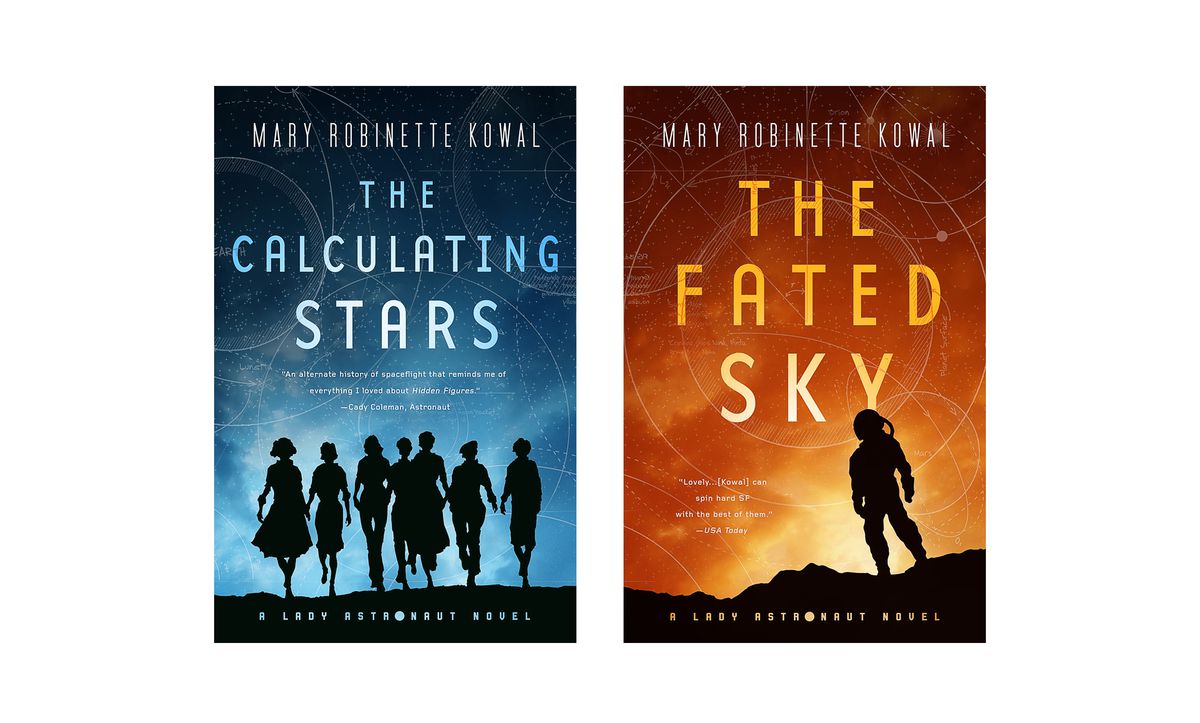
The Calculating Stars and The Fated Sky by Mary Robinette Kowal
What if the stakes of the space race were higher? In the opening chapters of Mary Robinette Kowal’s latest two novels, an asteroid lands just off the US Eastern Seaboard and threatens to drastically change the climate. To save humanity, the US and partner countries embark on an ambitious plan to colonize the Solar System.
In the midst of this is a WASP pilot named Elma York, who has the skills and ambition to assist with the effort. In the first novel, she faces systemic sexism and racism as she works to break into the astronaut corps as they set their sights on the Moon. In the second, she joins the first mission to Mars, and contends with not only the challenges of spaceflight, but the attitudes and biases of her crew. These two books are the first steps into a vivid, exciting world, and fortunately, there’s more to come.
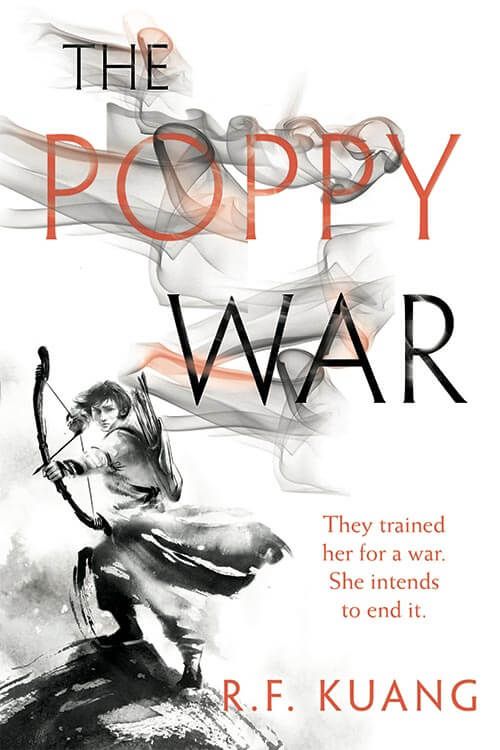
The Poppy War by R.F. Kuang
R.F. Kuang’s debut novel The Poppy War is the promising opening salvo for an upcoming military fantasy trilogy inspired in part by the atrocities that occurred during the Second Sino-Japanese War. It follows a bright young woman named Rin who earns admission into the Nikara Empire’s elite military academy, Sinegard, an escape from servitude in her impoverished province.
Once she arrives at the school, however, she finds that the road before her will be difficult: she contends not only with her classmates’ racism and a challenging course load at the school, but the onset of a brutal and horrific war. As she enters the fight, she learns that power comes at a horrific cost.
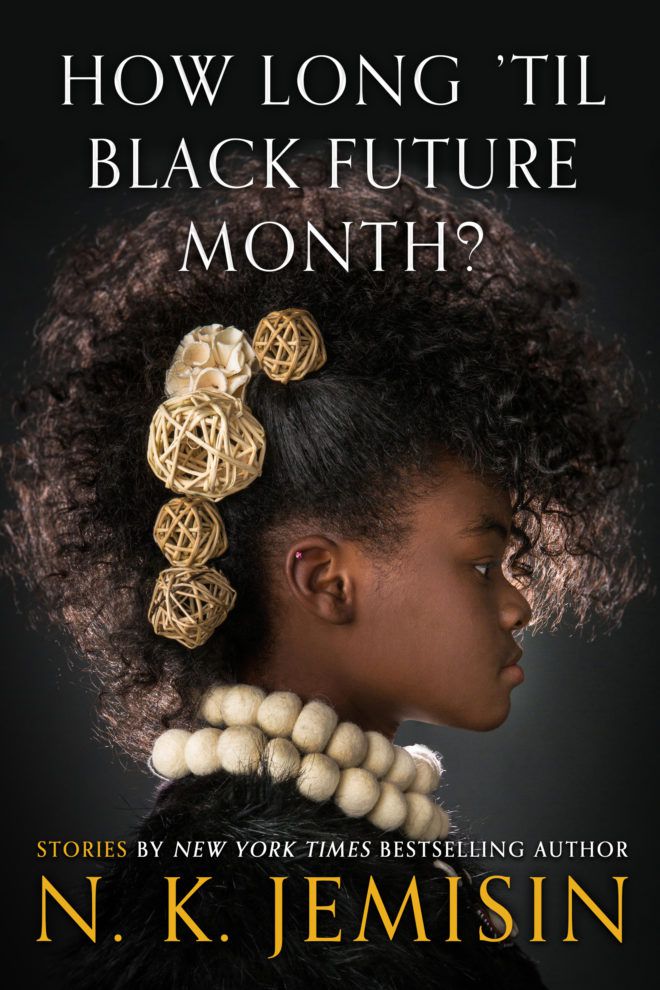
How Long ‘Til Black Future Month? by N.K. Jemisin
Earlier this year, N.K. Jemisin become the first author — ever — to earn three consecutive Hugo Awards for Best Novel for her phenomenal Broken Earth trilogy. While we wait for her next novel, she’s brought together a collection of her short fiction, How Long ‘Til Black Future Month?
Each story in this collection simmers with a righteous fury at the state of the world. Her characters often find themselves at the end of systematic injustice, and her stories, a mix of cyberpunk, epic and urban fantasy, hard science fiction, and more, critique modern life.
In “The City, Born Great,” a young man comes to terms with his status as the manifestation of New York City, while in “Red Dirt Witch” a mother faces down a powerful creature that represents white supremacy, and is forced to contend with the sacrifices that she and her family must make to ensure that they have a future. For fans of her Broken Earth trilogy, there’s also “Stone Hunger,” in which a girl will stop at nothing to hunt down a man who destroyed her life. The rest of the collection’s stories are just as fantastic and timely.
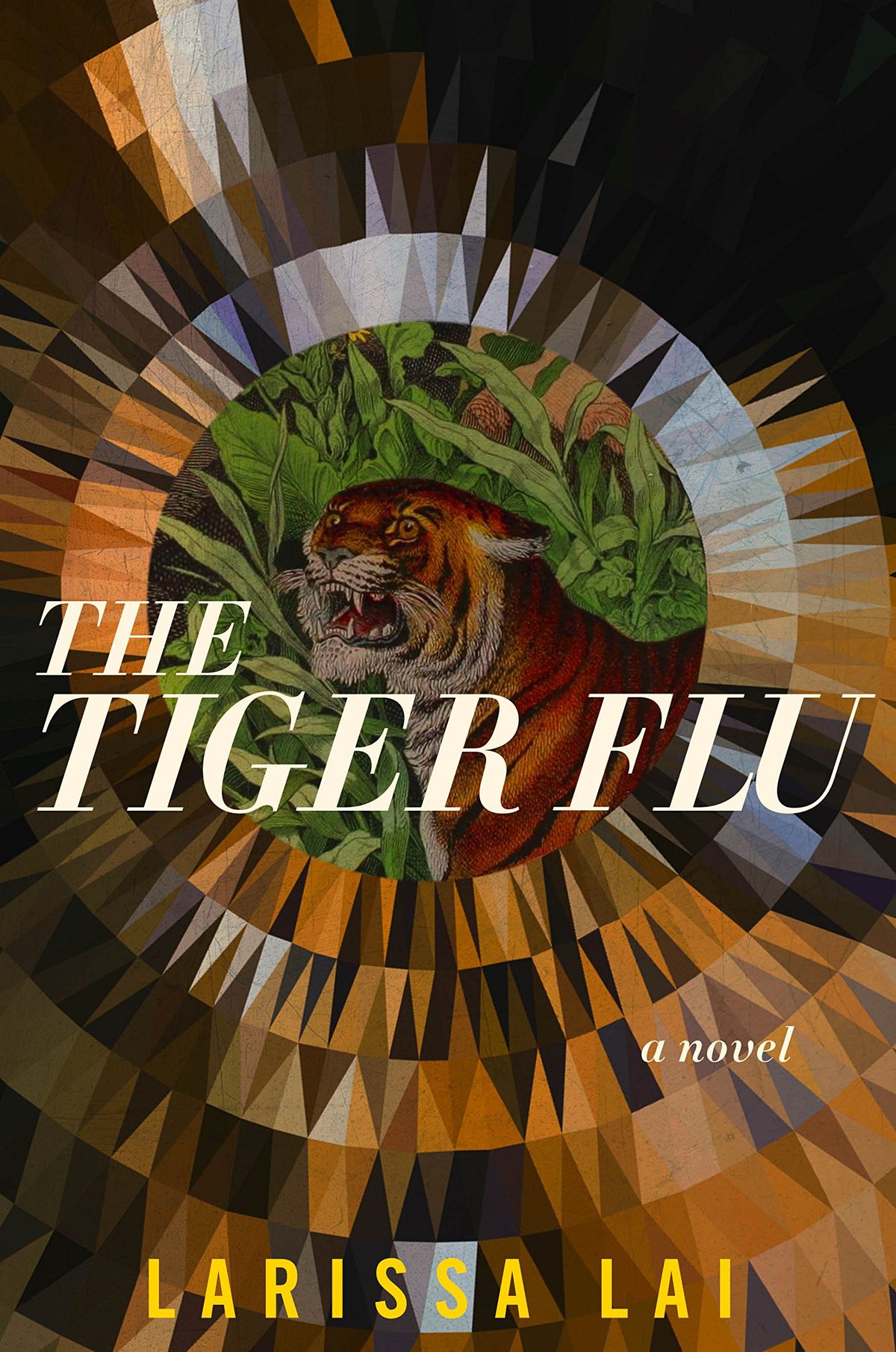
The Tiger Flu by Larissa Lai
Set in the distant future, humanity survives on a planet wrecked by climate change and plagues in Larissa Lai’s latest novel The Tiger Flu, which follows a community of cloned women who are battling for their very survival waged by illness and economics.
Lai’s story follows two women: Kirilow, a doctor of Grist Village whose lover Peristrophe dies of a new strain of flu. Peristrophe was vitally important to their community — she could regrow her limbs and organs, and following her death, Kirilow sets out to Salt Water City to try to find someone to replace her. There, she meets Kora, a woman living in the city who might be able to save her community, but who resists leaving her family behind. Lai’s story is an intriguing post-apocalyptic novel, one rife with biotech and the remnants of the world from before.

Ball Lightning by Cixin Liu
Cixin Liu is best known for his fantastic Remembrance of Earth’s Past trilogy — Three-Body Problem, The Dark Forest, and Death’s End — which begin in the 1970s and run all the way to the heat death of the universe. In his latest novel, Liu explores how obsession can lead to dark and dangerous places.
The book follows a young man named Chen who witnesses the death of his parents in a freak accident — they’re incinerated by a ball lightning strike. The incident leads him down a path to study the phenomenon, leading him across the world. Along the way, he meets an obsessive army weapons engineer named Lin Yun, who wants to harness the power of ball lightning into a new weapon. Liu approaches the story with the same interest in physics and technology as his other books, and highlights the dangers that power and technology can bring.

Trail of Lightning by Rebecca Roanhorse
Rebecca Roanhorse made a splash earlier this year when she won the 2018 Hugo and Nebula Awards for her short story “Welcome to Your Authentic Indian Experience TM.” Her debut novel Trail of Lightning is a dazzling urban fantasy that puts indigenous culture front and center and sets up an incredible world.
The book follows a Native American woman named Maggie Hoskie in Dinétah, the traditional homeland of the Navajo tribe. Protected from the chaos of climate change and war by massive, magical walls, she’s one of a small group of people who have exhibited magical powers and finds work as a monster hunter. When a magical construct snatches a young child from a village, she realizes that there’s a powerful force that threatens her community, and is pulled into the struggle to stop it before they’re wiped out.
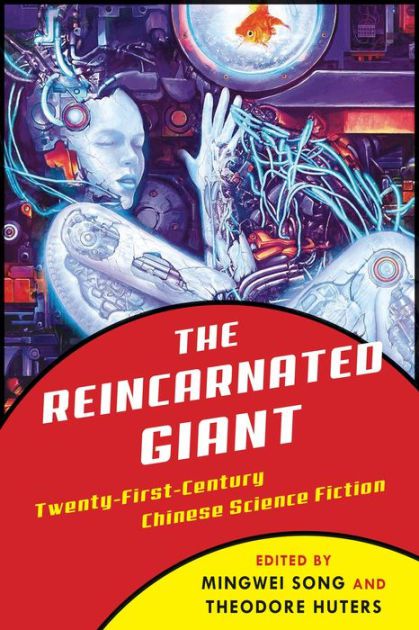
The Reincarnated Giant: An Anthology of Twenty-First-Century Chinese Science Fiction edited by Mingwei Song and Theodore Huters
Cixin Liu might be one of the best-known Chinese science fiction authors, but there’s a growing effort to bring more fiction from the country to the West. Wellesley College professor Mingwei Song and UCLA professor emeritus Theodore Huters have assembled a fascinating anthology of some of the contemporary stories coming out of China today.
Those include established authors like Cixin Liu, but also newcomers like Chen Qiufan, Xia Jia, Bao Shu, and others, telling stories about alternate realities, other societies, and potential futures for the ascendant nation. The stories range from interstellar wars, messages from a long-dead human race, as well as AI, robotics, and cybernetics. The stories represent just a slice of China’s science fiction community, but it’s an engrossing window into a fascinating body of work.
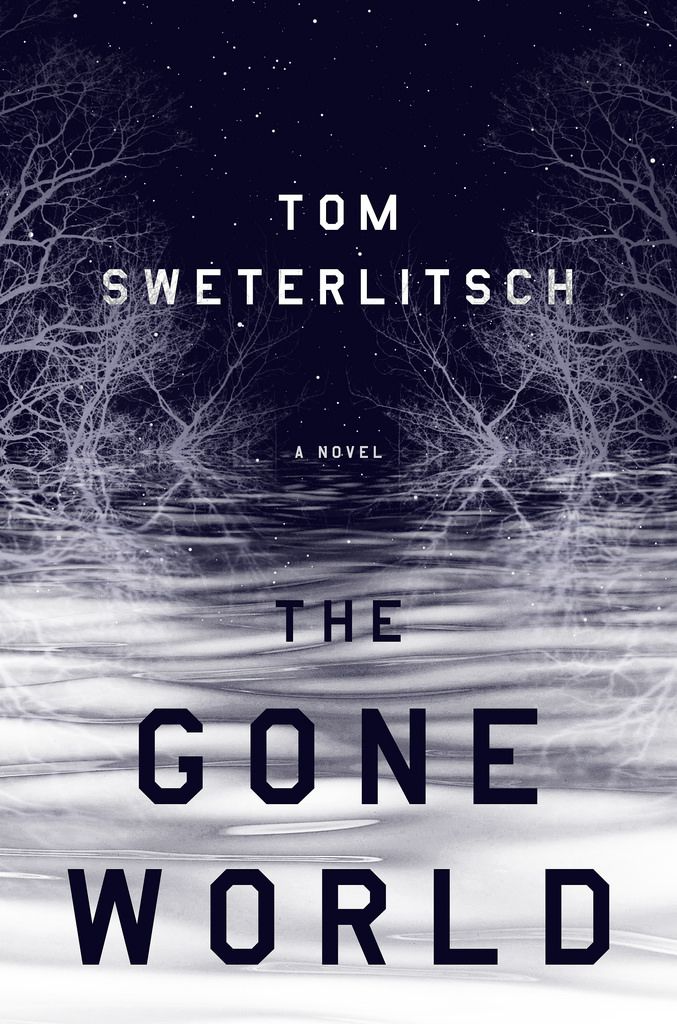
The Gone World by Tom Sweterlitsch
Time travel is a tricky proposition — science fiction has endlessly explored the possibilities and consequences of changing the past or future, and Tom Sweterlitsch’s book is a complicated take on the trope.
Sweterlitsch opens in the 20th-century with a time-traveling NCIS agent named Shannon Moss who is tasked with investigating a particularly gruesome murder. Moss jumps back and forth in time to try to unmask the killer, exploring different timelines and suspects. It’s a vivid, complicated story that blends crime fiction with cosmic horror that doesn’t release you until the last page is turned.
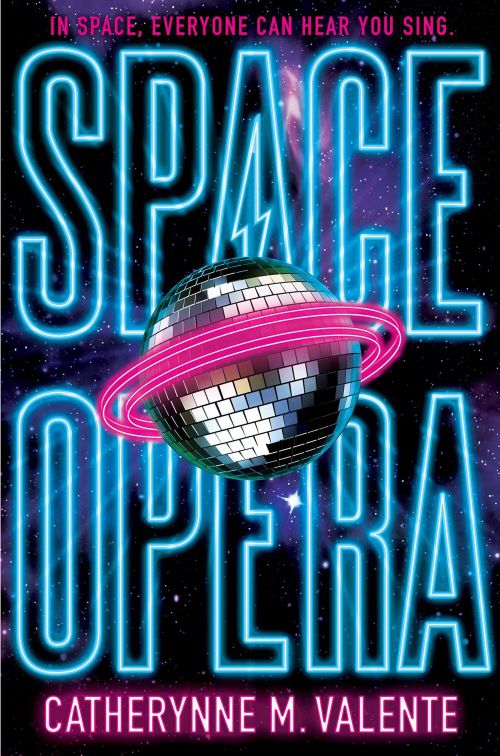
Space Opera by Catherynne M. Valente
Comedy in science fiction is often a tricky thing to accomplish — it’s hard to live up to the likes of Douglas Adams’ Hitchhiker’s Guide to the Galaxy series. But Catherynne M. Valente accomplished that and more with her novel Space Opera.
“Space opera” is the catch-all term for the type of science fiction novels set in big galactic empires or following starships as they work their way across space. Valente turned it into an excellent pun after a conversation about Eurovision. The book follows a washed-up glam rocker named Decibel who is brought on to represent Earth in a Megagalactic Grand Prix — an interstellar music competition that will judge whether or not Earth can join the greater galactic civilization. It’s side-splittingly witty and wonderfully written, with almost every line in the novel telling a story of its own.
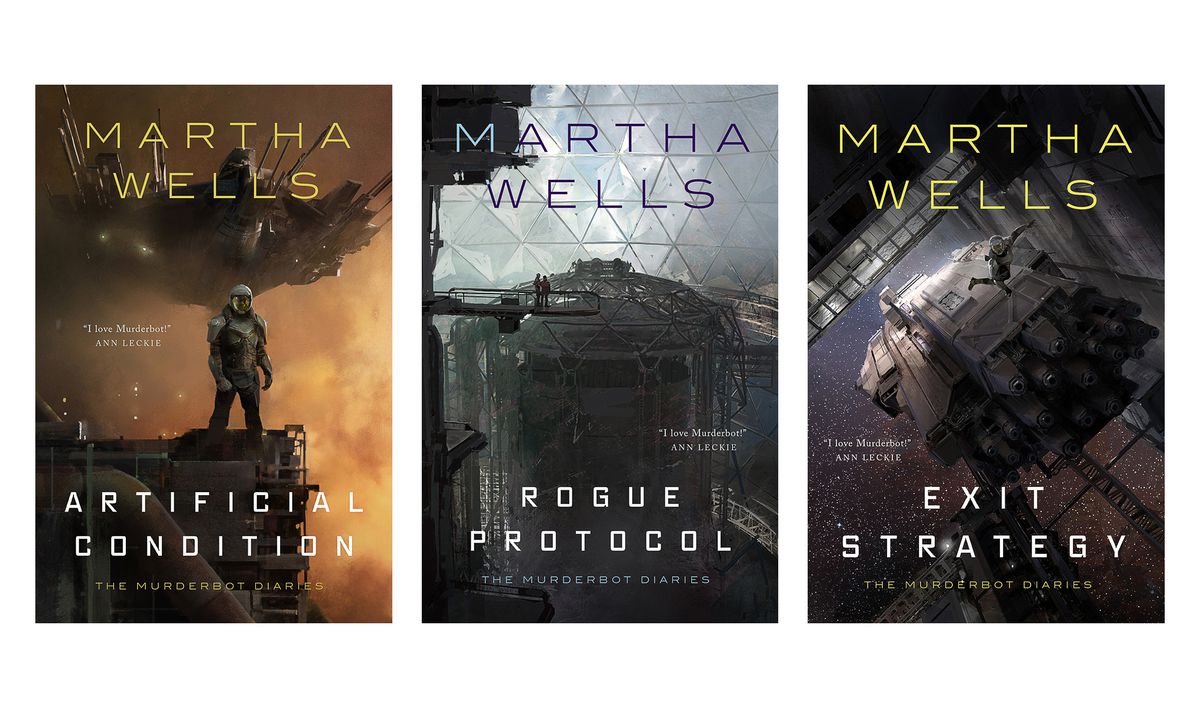
Artificial Condition, Rogue Protocol, and Exit Strategy by Martha Wells
Martha Wells’ first Murderbot novella, All Systems Red, came out last year, and was a huge hit — eventually earning the 2018 Nebula and Hugo Awards for its category. This year saw the rest of the series hit bookshelves, continuing the story of the grumpy-but-good-hearted security android that calls itself Murderbot.
Each story roughly stands on its own, but they make up a larger story in Wells’ universe, following Murderbot as it bounces from planet to planet and tries to figure out its purpose in the universe. Along the way, it finds itself helping people caught up in conflicts against the domineering mega corporations that rule the space lanes, and ultimately helps to take down one that’s been gunning for its friends. While this series has wrapped, Wired just published a new Murderbot short story, and Wells is hard at work on a new novel about the character.
Honorable mentions:
Children of Blood and Bone by Tomi Adeyemi; Space Odyssey: Stanley Kubrick, Arthur C. Clarke, and the Making of a Masterpiece by Michael Benson; The Only Harmless Great Thing by Brooke Bolander; The Black God’s Drums by P. Djèlí Clark; European Travel for the Monstrous Gentlewoman by Theodora Goss; Points of Impact by Marko Kloos; The 2020 Commission Report on the North Korean Nuclear Attacks Against the United States: A Speculative Novel by Jeffrey Lewis; War Cry by Brian McClellan; Time Was by Ian McDonald; Severance by Ling Ma; Black Star Renegades by Michael Moreci; Astounding: John W. Campbell, Isaac Asimov, Robert A. Heinlein, L. Ron Hubbard, and the Golden Age of Science Fiction by Alec Nevala-Lee; Star Wars: Last Shot by Daniel José Older; Gunpowder Moon by David Pedreira; Bandwidth / Borderless by Eliot Peper; Gods, Monsters, and the Lucky Peach by Kelly Robson; Head On and The Consuming Fire by John Scalzi; Vengeful by V.E. Schwab; The Book of M by Peng Shepherd; The Sky is Yours by Chandler Klang Smith; Mutiny at Vesta by R.E. Stearns; Rosewater by Tade Thompson; Unholy Land by Lavie Tidhar; Mecha Samurai Empire by Peter Tieryas; Side Life by Steve Toutonghi; The Cabin at the End of the World by Paul Tremblay; On a Sunbeam by Tillie Walden; The Freeze-Frame Revolution by Peter Watts; and The Descent of Monsters by JY Yang.
https://www.theverge.com/2018/12/21/18127146/best-sci-fi-fantasy-books-2018-jemisin-chambers-kowal-liu-valente

